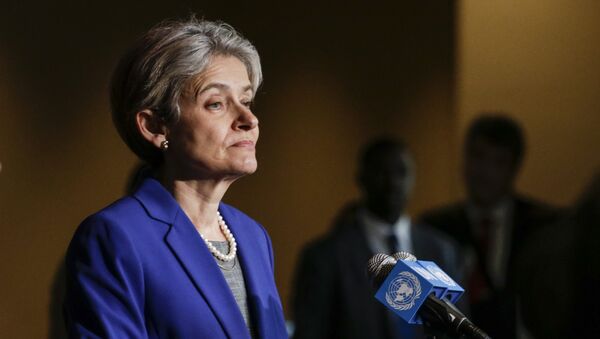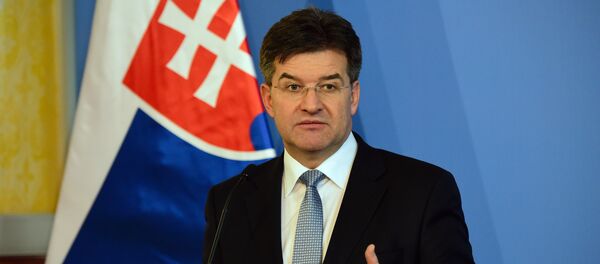If elected, Irina Bokova would become the first Eastern European and woman to head the influential global body.
In an interview with Sputnik, Expert magazine’s political observer Sergei Manukov said that Irina Bokova’s onetime studies in Moscow and her fluent command of the Russian language could be seen as a liability by Washington.
“Bokova invited Washington ire back in 2011 when UNESCO officially recognized Palestine. Israel and the US even stopped paying their dues to the organization. As a result, the UNESCO’s budget dropped by a hefty 22 percent. Before that they held her in very high regard while now because of her onetime studies in Moscow, they say she is allegedly chummy with President Putin! That’s why the Americans and their British friends are now persuading all other Security Council members to vote against her,” Manukov said.
He added that it was probably why Bokova ended up in third place in the first round of voting, even though she had previously been considered a hands down favorite.
First, because with her good rapport with Moscow she would find it easier to align the interest of conflicting groups within the Security Council and, secondly, because she could also serve as a peacemaker.
When asked by Sputnik whether the West is prepared to have the UN run by an Eastern European representative, Georgy Toloraya, head of the Korean affairs desk at the Russian Academy of Sciences’ Institute of Economics in Moscow, said that he doubted it because the UN has long become a battleground for the West.
“That’s why they need a referee who would be kowtowing to the needs of those who have a decisive say on who is going to become the new UN Secretary General,” he added.
Acknowledging the work done by the current UN chief Toloraya said that during his decade-long stint ban Ki-moon had managed to stay friends with everyone, always demonstrating a great deal of flexibility.
Even though he has failed to resolve many major international problems, he still managed to at least keep them from metastasizing.
“The United Nations is losing its clout, increasingly turning into a discussion club instead of being able to enforce its decisions,” Georgy Toloraya said in conclusion.
Aside from Bokova, the candidates' list includes former Prime Minister Helen Clark of New Zealand, who previously refused to send her country's troops to Iraq and "proved her independence from the United States, Britain and Australia.



